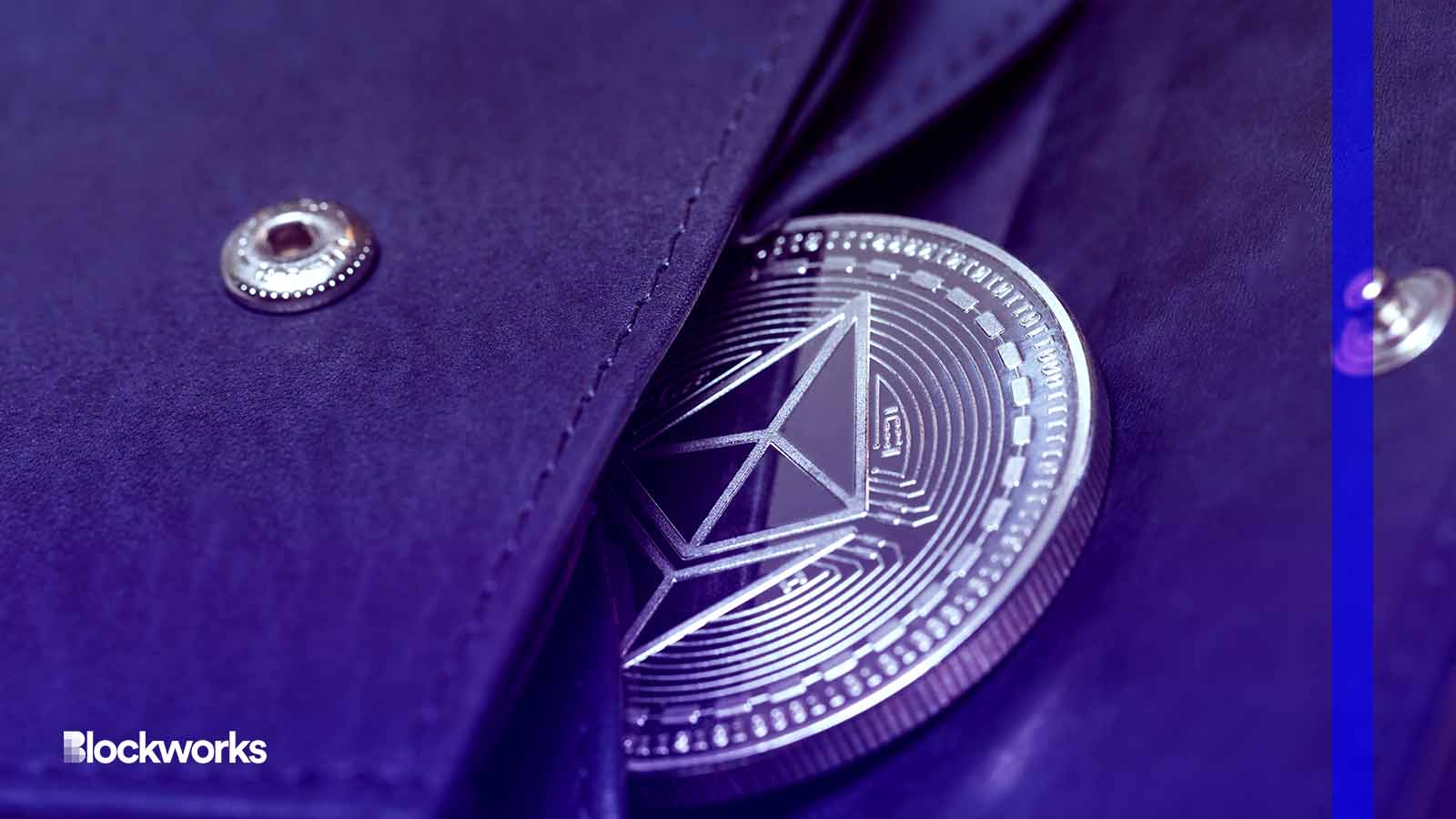Aurox Makes it Simpler to Transact on Ethereum
Users will no longer need to hold ETH to make transactions on Ethereum using the Aurox Wallet

Tobias Arhelger/Shutterstock modified by Blockworks
Aurox wallet users will no longer need to hold ether to make transactions on the blockchain.
On Ethereum today, token swapping involves users having to hold ether (ETH) in their wallets so that they can pay for gas fees which will execute the transactions. This can be a confusing experience for users who are not yet familiar with the DeFi ecosystem.
To resolve this pain point, web brower extension-based Aurox Wallet has partnered with Chainlink to enable its users to pay gas fees in any ERC-20 token instead of paying for the cost in ETH.
In an interview with Blockworks, Aurox CEO Giorgi Khazaradze explains that one of the biggest challenges he came across when he first dabbled into the blockchain technology space was not understanding that he needed to hold certain tokens in order to make transactions on-chain.
“I wanted to send USDC to my developer and I couldn’t because I didn’t have any ETH — I think a big holdup on people that are entering into DeFi is they don’t realize that one tiny thing can basically make your wallet useless,” Khazaradze said. “So we developed a version where even if you set up a brand new wallet, you deposit your USDC into it, you can swap that USDC in the wallet…you don’t ever have to touch ETH at all.”
Unlike many of its competitors, Aurox Wallet will not be following the ERC-2771 token standard Khazaradze notes.
ERC-2771 requires users to approve transactions for the ERC20 token, which means they are still required to cough up ETH for network fees.
As it currently stands, only tokens such as DAI allow users to execute transactions without paying an approval transaction fee, Khazarade said.
Instead, Aurox Wallet will be using Flashbots to bundle and approve transactions.
For example, if a user is trying to swap USDC for USDT, a bundled transaction will be sent to the Flashbots Remote Procedure Call (RPC) and the transactions will be executed within the same block in three separate transactions:
- Transfer: ETH would be transferred from Aurox’s hot wallet to the user’s wallet if they do not hold any ETH.
- Approval: if necessary.
- Swap: The input token will be converted to ETH and paid back to Aurox for enabling the initial ETH transaction.
Prices will be executed based on Chainlink Price Feeds to ensure users are getting accurate rates sourced from multiple different exchanges.
Although multiple swaps will likely increase transaction fees, an Aurox GitHub post notes that these fees are offset by benefits such as Flashbots protecting users from being frontrun by MEV bots and is still relatively cheaper than paying trading and withdrawal fees on centralized exchanges.
It also notes that transactions are instant, meaning it is much faster than bridging tokens from another blockchain. Transferring ETH from another Web3 wallet is the only method that could be cheaper — albeit by a small margin.
Ultimately, Khazarade believes this new Aurox wallet feature will be able to eliminate “a pretty serious user experience problem for retail users.”
A mobile version of the wallet along with hardware wallet support is planned.
Get the news in your inbox. Explore Blockworks newsletters:
- The Breakdown: Decoding crypto and the markets. Daily.
- 0xResearch: Alpha in your inbox. Think like an analyst.






